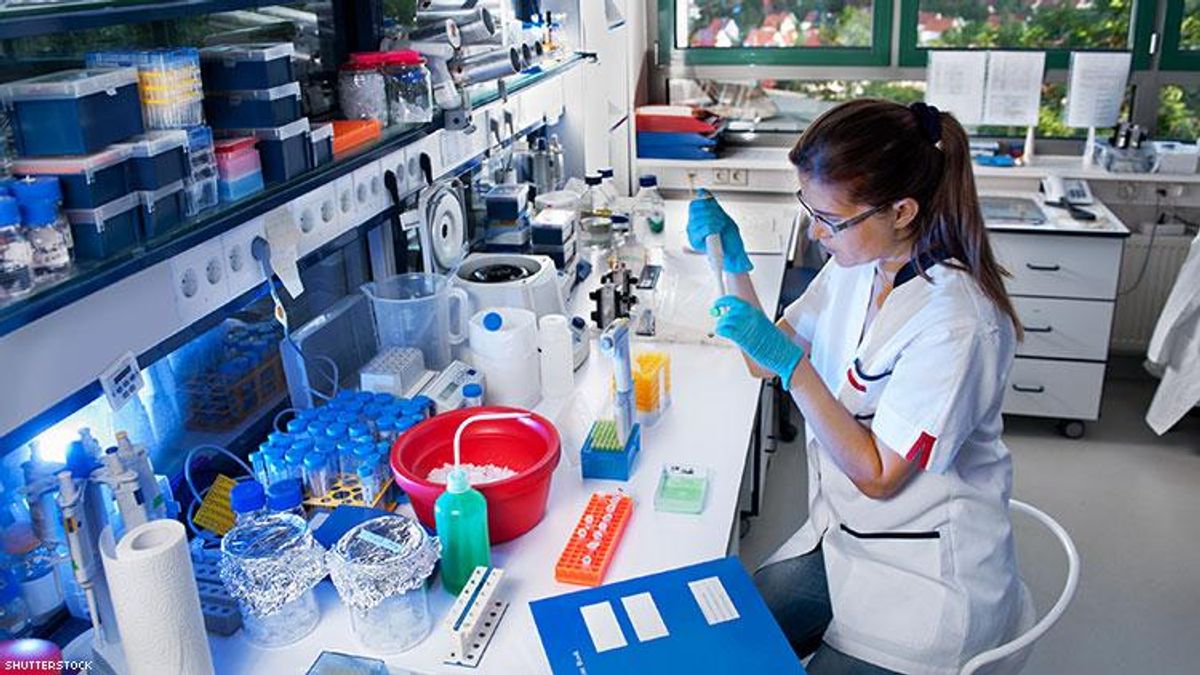The drug being called MK-8591 or EFdA is an exceptionally long-lasting and potent HIV drug being developed by researchers for Merck & Co. Inc. — And it just might become the weekly pre-exposure prophyalxis (PrEP) pill you’ve been waiting for.
It is classified as a nucleoside reverse transcriptase translocation inhibitor (NRTTI) and the drug operates at two stages during the HIV life cycle. The drug blocks HIV from making a DNA copy of its genes that can be inserted into a human cell, while also blocking integrated HIV DNA inside cells from being converted back into viruses.
Martin Markowitz of the Aaron Diamond AIDS Research Center explained to attendees at CROI on March 6 how studies indicate that a weekly pill could be as effective as traditional PrEP. It’s not the first time the drug has been highlighted.
At last year’s CROI, attendees learned that doses of MK-8591 as low as little as 0.5mg produced HIV viral load drops of at least 10-fold in HIV-positive human volunteers. In that study, the team enrolled 30 HIV-positive participants who had not yet started ART. Participants received a single dose of MK-8591 at doses of 0.5mg, 1mg, 2mg, 10mg or 30mg. Blood samples were collected regularly for up to 10 days to assess their viral loads and researchers observed “rapid and robust” viral load drops as much as 10-fold.
To better understand the drug efficacy in extended periods, researchers observed a controlled group of eight male rhesus macaque monkeys, using the drug as PrEP. (Using Old World monkeys, which includes rhesus macaques, is considered critical in medical research because of their human-like primate genetic makeup.)
The team of researchers observed a 41-fold or 97.6 percent efficacy in reducing SHIV (monkey HIV) infection with the drug. In the study, no infections were observed after the monkeys were given 14 oral doses of MK-8591 and “challenged” with 12 rectal doses of the virus.
After 24 weeks, none of the monkeys that were given MK-8591 PrEP were infected, while all the monkeys given placebo were infected within five weeks.
But researchers couldn’t help but wonder — would it be effective in even smaller doses?
The study was repeated with one-third the original dose, then one-ninth the original dose in subsequent studies. When the dose was eventually reduced to less than 25 micrograms (0.025 mg/kg) and four of the monkeys were infected. This enabled them to estimate the minimal amount of the drug needed.
Markowitz was able to determine that the drug could protect against HIV in humans at weekly doses at 250 micrograms. And this makes MK-8591 a great candidate for an extended-dose drug.
“In rhesus macaques, MK-8591 completely protects against SHIV infection at weekly doses of 1.3 and 0.43 mg/kg and is partially protective at 0.1 mg/kg,” the team concluded in its abstract. “MK-8591-TP levels that are protective in this model are achievable in humans at weekly doses of less than 250 µg weekly or 10 µmg daily, suggesting MK-8591 utility in extended duration prophylaxis against HIV infection.”
Missing doses of traditional PrEP could be abated with long-lasting drugs that prevent the spread of HIV. It’s an exciting development to see potential improvements in HIV medicine and a candidate for an extended-release PrEP.

















































































